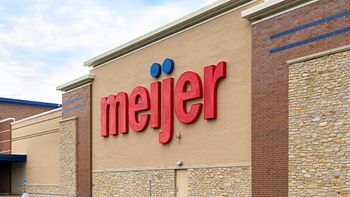Key Takeaways
- GSK discontinued Flovent HFA and replaced it with a generic to avoid new Medicaid rebate rules that would have required them to pay more in rebates than they made in sales.
- The move led to higher patient costs and reduced access, as many insurers didn’t cover the generic, sparking public backlash and a Senate investigation into increased hospitalizations.
- The policy change under the American Rescue Plan that removed the Medicaid rebate cap created a scenario where drugmakers could lose money on every Medicaid prescription, prompting market exits.
The medical and patient community are up in arms over the discontinuation of the Flovent HFA asthma inhaler by GSK in January 2024, followed by a rebranding as an authorized generic. By introducing the authorized generic, GSK avoided paying increased Medicaid rebates for Flovent. This change resulted in substantial co-payments for most patients. Sen. Maggie Hassan (D-NH) recently started a Senate investigation into claims of increased hospitalizations and preventable deaths due to lack of patient access to the medications. GSK is experiencing some fallout over perceived short-term gains at the expense of patients, as noted in reports out of the investment community.1
It is obviously sad when patients suffer health complications due to poor access to much-needed medications. What happened here?
Medicaid rebates
Drug companies pay mandatory rebates2 for their Medicaid book of business over the lifecycle of its products. The rebate amounts to 23.1% of the average manufacturer price (AMP) or when higher, the difference between AMP and the “best price.” Best price is defined as the lowest available price to any wholesaler, retailer, or provider, excluding certain government programs—such as the health program for veterans—while AMP is defined as the average price paid to pharma manufacturers by wholesalers and retail pharmacies. Any price increases taken by drugmakers that are exceeding the consumer price index (CPI) are also added to the rebate. In essence, Medicaid receives the best price that any customer (with few exceptions) gets, and prices cannot increase beyond the CPI.
Particularly for drugs in competitive therapy areas, rebates to commercial health insurance companies can reach very high levels (i.e., 80% or higher). As a result of complex Medicaid rebate calculations and adjustments over years, the Medicaid rebates for some of these drugs would exceed 100% of the price if the rebates were not capped by law at 100%.
Flovent was one of these drugs, for which the government received a full refund for all drugs used by Medicaid patients. GSK was mandated to incur substantial losses, as they were mandated to provide these drugs for free without any restriction or limitation.
America Rescue Plan Act
As part of the America Rescue Plan Act of 2021, caps on Medicaid rebates at 100% were removed effective Dec. 31, 2023. When enacted, eliminating the rebate cap was projected3 by the Congressional Budget Office to reduce federal spending by more than $17 billion over 10 years. As a result of the elimination of the caps, Medicaid rebates for some drugs from then on exceeded 100% of the price, thus forcing pharma companies to pay more in rebates than they received in sales revenues for drugs such as Flovent. For every unit used by Medicaid patients, GSK and other companies now lost money.
It is not clear what drove the Biden administration to remove the Medicaid rebate cap.
Flovent market withdrawal
In January 2024, GSK authorized Prasco Laboratories to launch an authorized generic for Flovent and withdrew its own Flovent from the market. Prasco’s drug was launched at a lower list price, but with a “reset” of the mandatory Medicaid rebates, it resulted in a price higher than zero for Medicaid and a need to renegotiate rebates for other insurance channels. Most payers balked at covering the authorized generic and instituted formulary exclusions or unattractive tier placements, resulting in high cost to patients that did not have a suitable alternative.
Who is to blame?
Patients are literally paying the price for the Flovent market withdrawal and insurance companies’ decisions not to cover the generic. Should GSK have kept Flovent on the market despite that annual $368 million rebate bill that far exceeds the Medicaid revenue collected for Flovent? Should insurance companies have been more flexible in providing coverage for Flovent, even at a somewhat higher copayment? Maybe. However, the biggest question is why a government insists on a better than “for free” deal. What were they thinking?
About the Author
Ed Schoonveld is a value and access advisor for Schoonveld Advisory and author of The Price of Global Health.
References
1. Northwood R. The Flovent HFA Exit: A Cautionary Tale for Pharma Investors in an Era of Regulatory Shifts. AInvest. June 27, 2025. https://www.ainvest.com/news/flovent-hfa-exit-cautionary-tale-pharma-investors-era-regulatory-shifts-2506/
2. Dolan R. Understanding the Medicaid Prescription Drug Rebate Program. KFF. November 12, 2019. https://www.kff.org/medicaid/issue-brief/understanding-the-medicaid-prescription-drug-rebate-program/
3. Williams E. What are the Implications of the Recent Elimination of the Medicaid Prescription Drug Rebate Cap? KFF. January 16, 2024. https://www.kff.org/policy-watch/what-are-the-implications-of-the-recent-elimination-of-the-medicaid-prescription-drug-rebate-cap/





